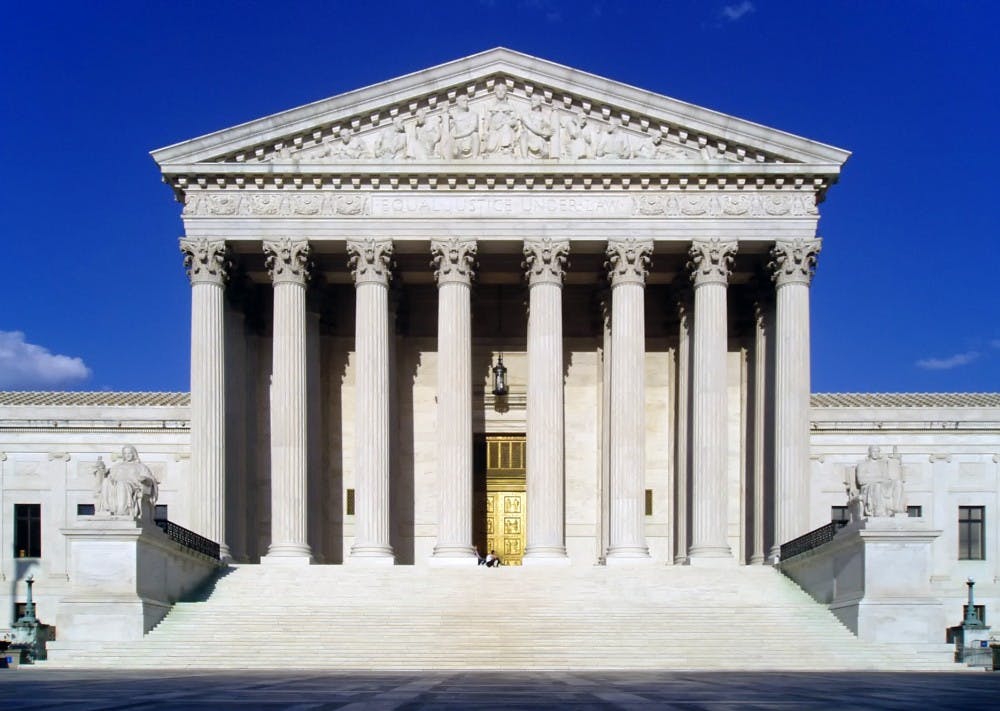Over 30 years ago, my father, a devout Muslim, left his home in war-torn Lebanon, in hopes of a better life. After coming to the United States, he enlisted in the U.S. Army and went on to serve for 21 years. His love and commitment to this country is greater than most, and it wouldn’t have been possible without being given the chance to come here in the first place.
President Donald Trump’s Muslim Ban, recently upheld by the Supreme Court, eliminates that possibility for any person from Syria, Iran, Sudan, Libya, Yemen or Somalia to come to the United States, just as my father did. Notice my diction here, “Muslim Ban.” I call it for what it is because one cannot deny the fact that this a “watered-down” and “politically correct” version of his initial proposition for a “total and complete shutdown of Muslims entering the United States”.
Though the decision is alarming, it shouldn’t be surprising. Islamophobia is on the rise throughout the country, including in Charlottesville and the University community. In 2016, there were 127 aggravated or simple assaults on Muslims in America. However, this phenomenon isn’t something that has been born out of the recent rhetoric and actions by President Trump and these several bigoted acts across this country. Moreover, it predates 9/11 and the War on Terror launched by President George W. Bush. This is an issue that lies at the bedrock of American society, and traces its roots back a thousand years, to an Orientalist framework that is well connected to the white supremacist history that has spilled over into today’s political discourse. Its deep, complex history must be understood if there is to be any true mitigation of this worsening trend.
Islamophobia isn’t limited to being prejudicial against Muslims. It’s more foundational, it’s embedded in our perceptions, our laws and our representatives. At its very core is Orientalism, most widely portrayed by Samuel P. Huntington’s “The Clash of Civilizations,” which seeks to show an inferior perception of the Middle East and its Muslim inhabitants. This has manifested itself into an impression that Islam is incompatible with American values and democracy. Sharia law and violence are intrinsic values to Muslims that have become invasive and dangerous to America and must be eradicated, so the argument goes. You can see this when Trump supporters shout “we cannot coexist” at Muslims in their rallies. Many perceive Muslims as danger or threats, and nothing more. After 9/11, and more recently, after the rise of Donald Trump, this became more overt, vocal and violent. In 2016, 67 percent of Trump supporters held unfavorable views of Muslims.
But it isn’t just Trump supporters. In that same poll, 35 percent of all 2016 voters held that sentiment. Why? Because this perception is being perpetrated on the Left just as much as it is on the Right. Liberals will claim similar arguments regarding the incompatibility between their values and Muslim values, where Muslims must “adapt,” “conform” or “adjust.” This, like the Orientalist framework, is a classic bigoted impression of Islam. One where Muslims, as Christians did in the 1700s, must go through an Enlightenment, adjusting to modern times, science and secular beliefs in order to progress in society. I’ve lost count of how many of my fellow feminist classmates have come to me and questioned women’s freedom due to the supposed patriarchal nature of the religion. Talk show hosts like Bill Maher have used atheism to rival to the religious aspects of Islam. These sentiments are just as consequential as traditional Islamophobic views, and perhaps more dangerous, because few see the Islamophobia rooted within it.
The crux of this is that we can’t ignore Islamophobia, whether it happens at the University, on TV or in government. If we want to stop seeing the writing of “terrorist” outside of Muslim students’ dorm rooms; if we want to stop seeing awful, racist Supreme Court decisions being held; if we want to stop hearing terrorist, extremist, fundamentalist or jihadi when we see a hijab, tan skin or black long beard, we must notice the bigotry around us first. If you look closely enough, it’s probably right in front of you.
Omar Elhaj is a third-year student in the College of Arts and Sciences and president of the Class of 2020.
Correction: This article previously listed Iraq on the list of countries from which immigration is barred under President Trump's executive order. The column has been updated to reflect the correct list of countries.







